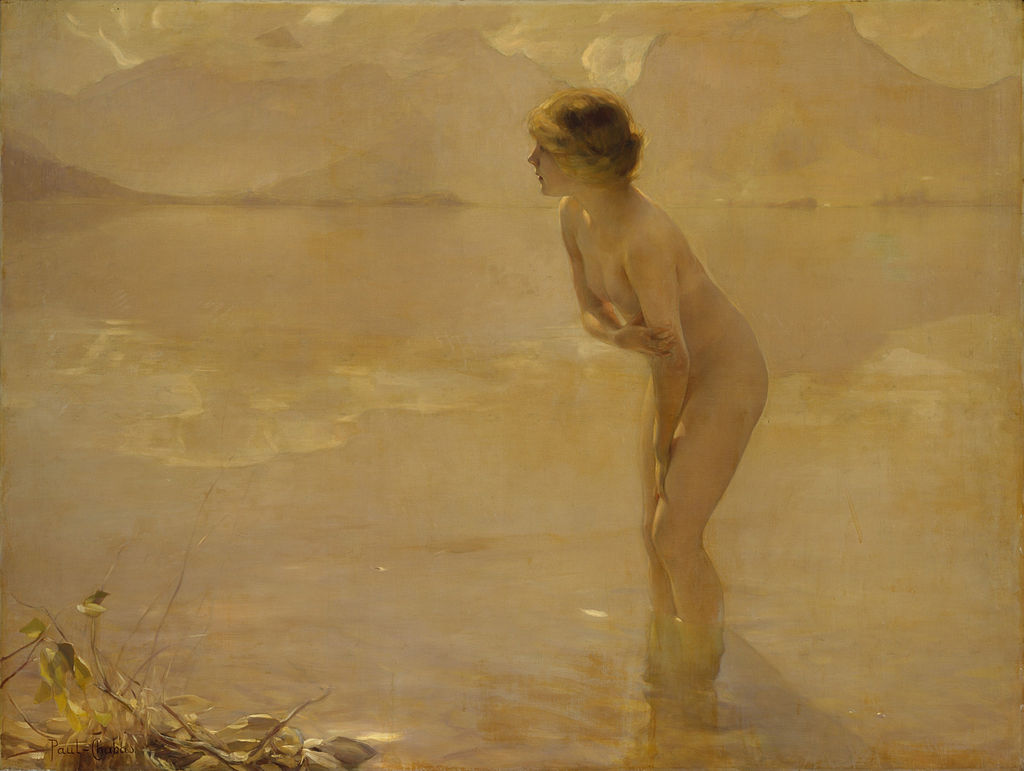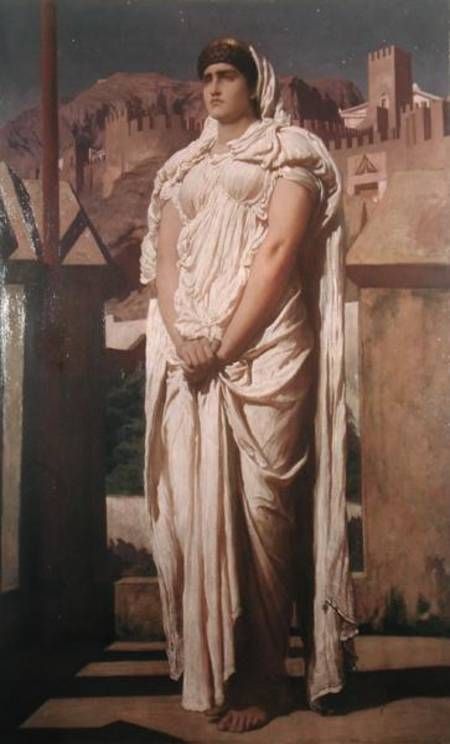Pelopia
Pelopia (daughter of Thyestes)
Pelopia was a female member of the accursed House of Atreus, a descendent of Tantalus, and therefore quite possibly doomed from birth.
Pelopia was the daughter of Thyestes by an unknown woman, and was therefore granddaughter of Pelops, and great-granddaughter of Tantalus. Pelopia was said to have had two or three unnamed brothers.
Pelopia’s father Thyestes, and her uncle Atreus, had been sent into exile for their part in the death of their stepbrother. They found a new home in Mycenae, and things were looking up for Pelopia, especially when Thyestes became king of Mycenae, after the death of Eurystheus.
Atreus though would soon usurp the throne, with the help of the gods. Thyestes and Pelopia would be exiled from Mycenae, although Pelopia might still have been in Mycenae to witness the banquet where her brother’s were served up as the main course for Thyestes to eat.
Pelopia would find refuge in Sicyon in the house of King Thesprotus, and would gain a privileged position within the temple of Athena. Events elsewhere would have a dramatic impact upon her life.
Thyestes had travelled to Delphi to find out how he could have his revenge upon Atreus, and the Oracle had told the former king that if his daughter bore him a son, then that son would kill Atreus.
Thyestes would travel to Sicyon, and there he came across Pelopia washing herself in a river after a sacrifice in the temple. Disguising himself, Thyestes would rape his own daughter, although Pelopia managed to take away her attackers sword, and hide it away, so that she might one day recognise her attacker.
Thyestes’ raping of Pelopia did indeed make his daughter pregnant, but before the pregnancy showed, Atreus himself came to Sicyon. Atreus saw Pelopia, and although uncle did not recognise niece, Atreus decided to make Pelopia his new wife. Thus, Pelopia once again returned to Mycenae, and Pelopia would give birth to Atreus’ “son”.
Some versions of the Pelopia myth tell of how the new queen of Mycenae abandoned the newborn boy, ashamed that it was produced as a result of rape. But, although abandoned on the hill side, Aegisthus was rescued first by a she-goat and then by a shepherd. The shepherd was then said to have brought the abandoned child to Atreus who then raised it as his own.
Eventually, after the passing of many years, Thyestes was discovered in Delphi by Agamemnon and Menelaus, who forcibly returned their uncle to Mycenae. Imprisoned in a cell, Atreus then sent his “son” Aegisthus to kill the prisoner, but when Aegisthus unsheathed his sword, Thyestes recognised it as the sword he had lost years before.
When Thyestes questioned his would be assassin about the sword, Aegisthus was forced to call upon his mother Pelopia to provide the details. When Pelopia recognised the prisoner as both her father and her rapist, the daughter of Thyestes took the sword from her son, and stabbed herself with it, committing suicide.
Pelopia’s son though would go on to kill Atreus with the same sword shortly afterwards; confirming the prophecy made years before.
The name Pelopia in Mythology
In Greek mythology, Pelopia or Pelopea or Pelopeia (Ancient Greek: Πελόπεια) was a name attributed to four individuals:
Pelopia, daughter of Thyestes whom by him, she mothered Aegisthus.
Pelopia, daughter of Pelias and either Anaxibia or Phylomache, daughter of Amphion. She appears briefly in the Argonautica, giving her brother Acastus a mantle of double fold before he sails off with the Argonauts. She and her sisters killed their father, having been tricked by Medea into believing this was needed to rejuvenate him.
Pelopia, one of the Niobids. She was slain by Artemis.
Pelopia, mother of Cycnus by Ares.

Sources
Hyginus, Fabulae, 87-88, 243
Pseudo-Apollodorus, Bibliotheca 1. 9. 10
Apollonius Rhodius, Argonautica, 1. 326
Hyginus, Fabulae, 24
Bibliotheca 3. 5. 6
Scholia on Euripides, Phoenician Women, 159
Pseudo-Apollodorus, Bibliotheca 2. 7. 7
John Tzetzes. Chiliades, 1.18 line 453
Hyginus, Fabulae, 87-88, 243
Scholia on Euripides, Orestes, 14
Aelian, Historical Miscellany, 12. 24
"Greek Legends and Myths"













